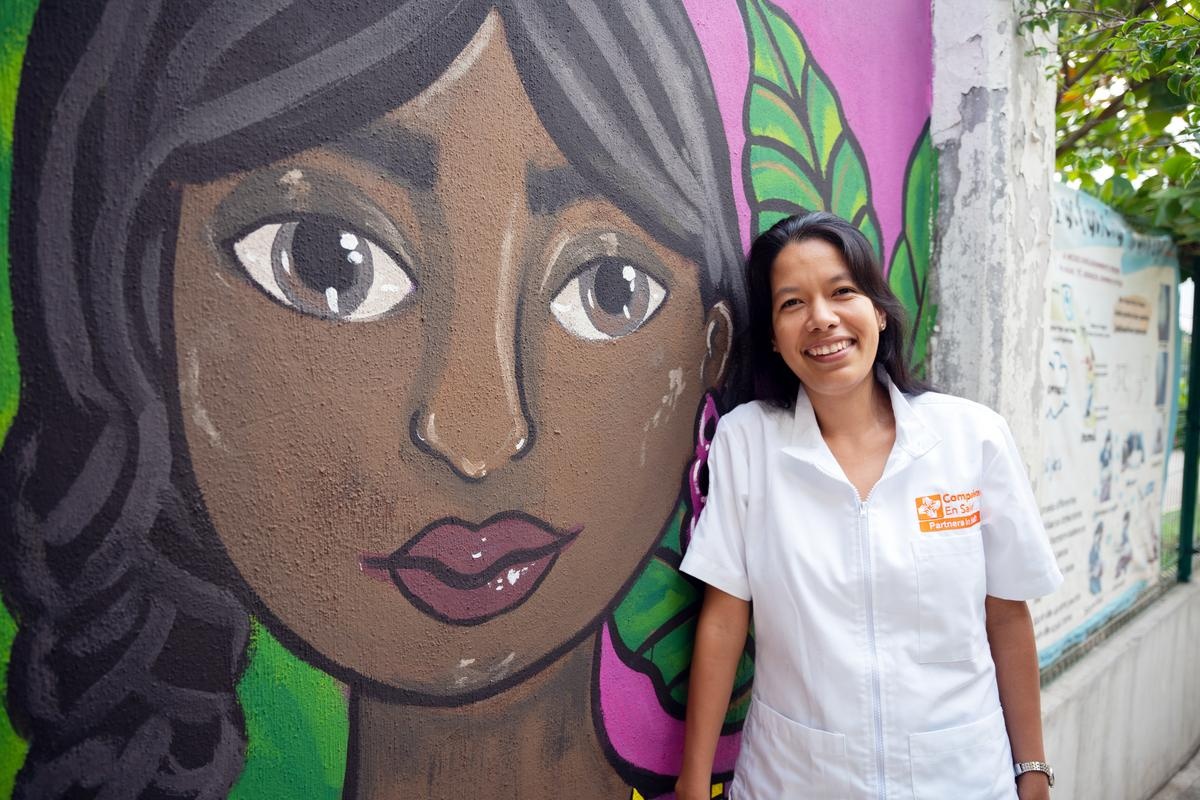Indigenous Midwife Breaks Barriers, Delivers Care in Chiapas
Indigenous health workers in Mexico face widespread discrimination
Posted on Jul 13, 2023

Herlinda Basilio, now a midwife, still remembers the first birth she witnessed.
"I'm the oldest of three sisters," says Basilio, who now works with Partners In Health, known in Mexico as Compañeros En Salud. "When I was about 7 years old, my youngest sister was born, and I wanted to see it. I wanted to watch the birth happen."
Because of her young age, Basilio was not able to see the entire birthing process. But she was able to see the care provided by her grandmother, before and after the birth. She remembers something else about that day, too: her grandmother waited for the placenta to come out and then buried it next to a fig tree.
It was a tradition linked to her Purépecha heritage. The Purépecha are one of 68 indigenous groups in Mexico. Most live in the northwestern Michoacán region, where Basilio grew up. Her parents were artisans, making bells and wicker mats that they sold at local markets. The family wore traditional clothes, and Basilio and her sisters grew up speaking Purépecha at home—not Spanish.
Over 7.3 million Mexicans speak indigenous languages, representing 6% of the country's population. More than half of this population lives in indigenous regions. However, most of these municipalities are impoverished, making access to education far from a guarantee, especially for girls.
Basilio knew from a young age that she wanted to go to school. Witnessing the birth of her sister and her grandmother’s caregiving inspired her to set her sights on a career in health care.
Breaking Barriers
She first started nursing school at Patzcuaro, an hour from her home.
It was a tough transition.
"My native language is Purépecha. So at first, I got tired of speaking Spanish all day," she recalls. "It was also difficult because my classmates would see my family, [including] my mom [and] how she was dressed in traditional skirts, and they would ask me why she was dressed like that."
The microaggressions went beyond the classroom.
"Once I did rotations in a private hospital. I felt like they treated me differently,” she says. “They asked me what I was doing there, if I was indigenous. They wouldn't let me see patients.”
Basilio was far from alone in her experience.
Mexico’s National Institute of Statistics and Geography found in 2020 that 24% of the indigenous population in Mexico had experienced at least some type of discrimination, because of their speech, clothes, or religious beliefs. Those patterns extend to the health care field as well, where health workers of indigenous descent routinely experience discrimination, offensive comments, and mistreatment.
As Basilio continued to study nursing, coming to terms with the discrimination, she had another revelation. Nursing wasn’t what she truly wanted to do. She wanted to deliver babies. Halfway through her studies, she learned about a school called Mujeres Aliadas and met with the director. The meeting inspired her to change her educational path and study professional midwifery.
She still vividly remembers the first time she was present at a birth as a midwifery student. It was a dream she had long had: to be able to accompany someone during such an important moment. She, along with her classmates, prepared the space to tend to the woman who would give birth that day. They massaged her belly and prepared a tub with water and herbs.
"My more experienced colleagues were the ones in charge of attending the birth, but I was accompanying them and I was surprised,” she says. “[I realized] this is what I like. I discovered that this was my place."
‘This is my dream’
Now, Basilio is a midwife with Compañeros En Salud, as Partners In Health is known in Mexico. Her work at Casa Materna, a maternal health center in Jaltenango, is far from her home in Michoacán. But her cultural and medical knowledge guide her work every day.
"For me, midwifery means something very beautiful, because it's accompanying women during this process," she says. "It's being able to give her the freedom to choose in which position she wants to give birth, who she wants to accompany her...and every woman's story is different."
She is completing her year of social service, mandatory for all students in Mexico, with Compañeros En Salud. She then plans to return to her hometown, San Andrés Tziróndaro, to support the women in her community.
Each year, Compañeros En Salud accepts 10 first-year clinicians—including doctors, nurses, and midwives—as part of its pasante program. The program aims to strengthen health systems by providing training and mentorship to young clinicians across Mexico who come to live and work in Chiapas for one year.
At Casa Materna, Basilio spends her days meeting with mothers to discuss pregnancy and birthing, preparing labor and delivery rooms to meet their needs, and learning from the professional and traditional midwives on staff. And she does what she loves most of all: she delivers babies.
"I feel proud to be a midwife,” she says. “This is my dream. And I want to accompany each of the women I have the opportunity to care for."

